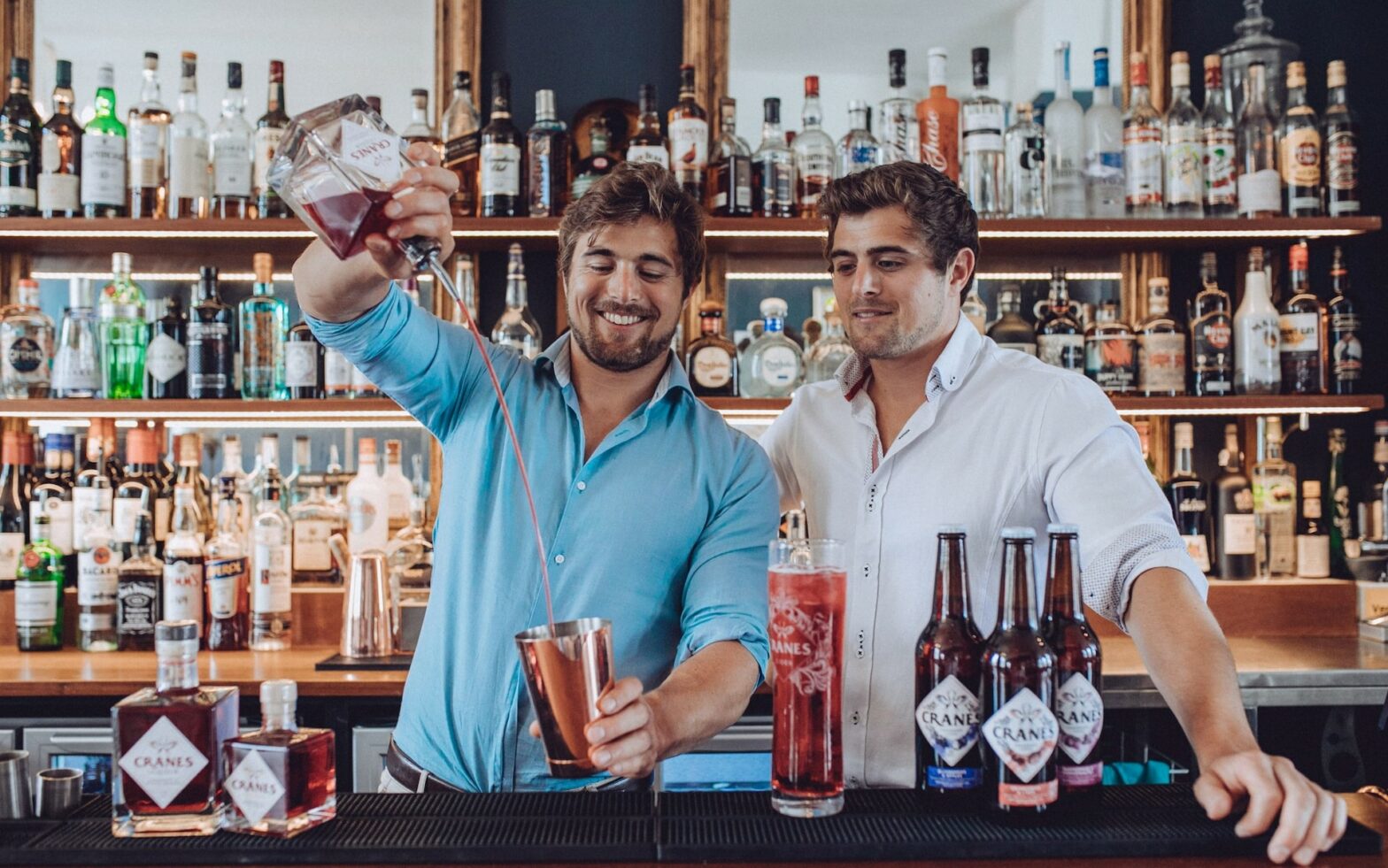Brothers Ben and Dan Ritsema launched Cambridgeshire-based Cranes Drinks in 2012 offering cranberry-based cider. They developed Cranes part time while running a gardening business. Today, Cranes has four full-time employees and monthly sales of £70,000. Turnover last year was £420,000. The range has expanded to include a liqueur and a gin. Last year, they made it onto supermarket shelves for the first time, being stocked by Asda and by Morrison in the East Anglia region.
Here, Dan Ritsema explains how the uniqueness of your product can be a problem, the attractions of crowdfunding and why he’s not afraid to seek advice.
Where did the idea for your business come from?
Ben was at university in Exeter enjoying the copious amounts of cider that were on offer and I was in Leeds drinking anything I could get my hands on. In a bid to try and compensate for all the unhealthy drinking I gravitated towards cranberries, as they are notoriously healthy.
As twins do, we brought these two things together to form one and that was the birth of Cranes Drinks.
What experience do you have in your sector?
We didn’t have any brewing experience, so it involved a great deal of trial and error before we created a product which tasted right. A light crisp, alcoholic drink which was low in calories.
This became a lot easier when we created our Cranberry & Blood Orange Liqueur and Cranberry Gin, as we now had a lot more experience, and knew what not to do.
What funding did you have to start the business and where did it come from?
To start the business in 2012, we used our own savings which came from the gardening business we had set up. To help aid the growth of the business and our core product lines we set up our first wave of crowdfunding in 2016.
Do you consider your business to be a disruptor?
Yes, we consider our business to be a disruptor, as it is bringing back the craft element to the fruit cider market. We are small brand playing in an area which is dominated by the multinationals.
Also, we have 30 per cent fewer calories than brand leaders, as we utilise the natural sugars which come from the super fruits we brew, we consider this one of our biggest USPs as consumers are demanding natural products.
What part does technology play in the business?
Technology does not play a massive part in our business, as our products are all handcrafted.
However, advances in technology such as social media has helped us spread the word about Cranes in the most cost-effective way. It helps us really engage with our consumers and catch their opinions on a day to day basis.
As the business has grown what are the major challenges you have faced, and have you overcome them?
Our major challenge was with our original product; it was too unique. It didn’t fit in to any clear alcohol category. When you don’t have massive budgets to create an entirely new alcohol category or spend copious amounts on national marketing, there is a fine line in becoming too unique.
We then began tweaking the recipe, combining cranberries with apples to create an actual cider. The product we have now a cranberry cider that comes in three different flavours: blueberries and apples; cranberries & limes; and raspberries and pomegranates. Once our products fitted into a category, buyers could get on board and we have now launched nationwide in Asda and also in select Morrison stores in East Anglia.
Have you turned to external finance to grow? If so, what type – debt or equity?
We have now carried out two waves of crowdfunding on Seedrs, which has resulted in 515 investors and over £420,000 being raised.
What would you say to any other small business owner mulling whether to bring in outside investors?
To any business on the brink of growth but being held back by lack of funds, we would strongly recommend considering crowdfunding. Crowdfunding has been a huge success for us. We would not be where we are today without our 515 investors.
How do you measure success for yourself, your investors, your staff and your customers?
We see success as watching the business grow from year to year, there is no better feeling.
As entrepreneurs you have a huge amount of passion for your business, if you can channel that passion into your employees it’s an incredible tool for your business to have, only the most successful employers achieve this.
What business (or personal) tip would you give to other entrepreneurs hoping to scale up their businesses?
Seek outside opinions and advice, sometimes you can become too embroiled in the business and a new perspective is always appreciated. I’d suggest to always take on board advice given by people directly within your industry.
Who has most influenced your working life?
Our dad has always encouraged everything we have done with the business. He’s never had a huge involvement, but we have always fully trusted his thoughts and advice. He’s always helped pick us up during the inevitable low points you have running your own business.
How do you relax outside of work?
Owning a business is very much like having a kid; there is so much responsibility and it takes over your life. One of the hardest things is taking your mind off work. However, playing rugby is one of the few things which works.
See also: How I’ve grown my business – Kaizen CEO Pete Reis-Campbell






